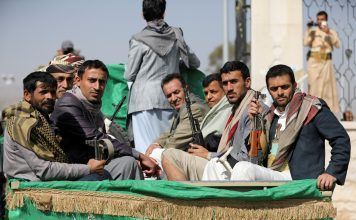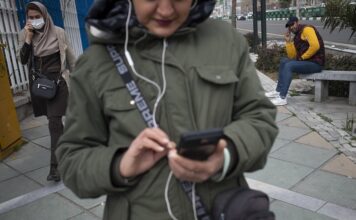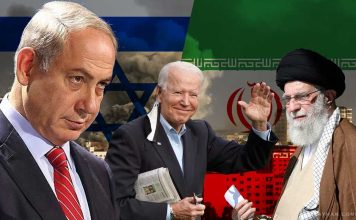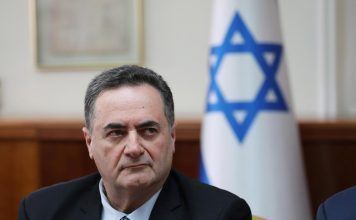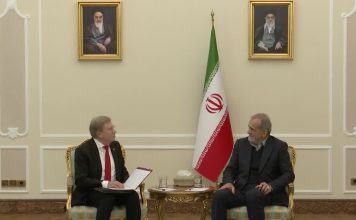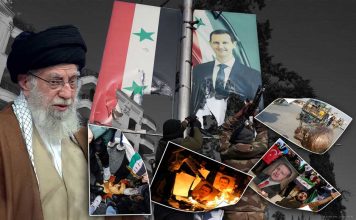By Kayhan Life Staff
The Majlis (Iranian Parliament) does not approve of protracted inspection of the country’s nuclear sites by the UN nuclear watchdog, the International Atomic Energy Agency (IAEA), Zohreh Elahian, a member of the Majlis’ Committee on National Security and Foreign Policy has said.
Ms. Elahian, who represents Tehran, Ray, Shemiranat, Eslamshahr, and Pardis electoral districts, made the comments in an interview with the government’s ICANA News Agency last week.
“The Majlis will never accept IAEA’s prolonged inspection of Iran’s nuclear facilities,” Elahian said. “The U.S.’s inhumane and unilateral sanctions have never been lifted or eased despite Iran’s full cooperation with the IAEA. It is time to reassess our decision to give the IAEA inspectors access to the sites.”
“The IAEA has inspected the [Iranian] nuclear sites several times. So this is nothing new. The inspectors make new allegations anytime they visit a site,” Elahian noted. “Each inspection is just another excuse for further visits to the sites. Information about the Natanz facilities could have been leaked during one of these inspections.”
A fire caused significant damage to Natanz enrichment facilities in early July. Speaking to the state-run Arabic-language Al-Alam TV on Aug. 23, the spokesman for the Atomic Energy Organization of Iran (AEOI), Behrouz Kamalvandi, said the explosion at Natanz resulted from “sabotage operations,” adding that “security authorities will reveal in due time the reason behind the blast.”
Another Majlis deputy, Hojjatollah Ahad Azadikhah, representing the Malayer electoral district in the northwestern province of Hamadan, also told ICANA that the Parliament would never approve protracted inspection of Iran’s nuclear sites by the IAEA.
“Under the nuclear agreement, the Islamic Republic did not have to allow the recent IAEA inspection. There was no need for it,” Mr. Azadikhah argued. “We allowed the recent inspections to stop the constant complaining by the IAEA. We have not deviated from the legal process and remain committed to the [nuclear] agreement. Iran has been sincere in its cooperation with the IAEA.”
“We should not forget that the U.S. uses the IAEA as a tool to halt the development of nuclear science and technology in many countries, including Iran,” Azadikhah added.
Iranian lawmakers and senior officials have been concerned about the IAEA’s recent inspection of the second of the two former secret nuclear sites in September.
“The IAEA has not named either of the two undeclared sites, but it has described activities it suspects took place there in 2003, the year it and U.S. intelligence services believe Iran halted a secret and coordinated nuclear weapons program,” Reuters reported.
Iranian lawmakers’ objections to extended inspections of Iran’s nuclear sites reveal a rift between Tehran and the IAEA.
A recent report by the IAEA said Iran’s enriched uranium stockpile had reached 2,105kg (4,640lb), nearly 10 times the limit set under the 2015 nuclear deal. The agreement set a limit of 300kg of up to 3.67 percent in enriched uranium-a particular compound form (UF6), equivalent to 202.8kg of uranium. Iran also has some 120 tons of heavy water, the report added. According to experts, 1,050 enriched uranium is needed to make a nuclear bomb.
[aesop_image img=”https://kayhanlife.com/wp-content/uploads/2019/05/2004-11-21T120000Z_788634034_PBEAHUOELBZ_RTRMADP_3_IRAN.jpg” panorama=”off” credit=”FILE PHOTO: Employees work in the Natanz nuclear facility 300 kilometers south of Tehran. Reuters ” align=”center” lightbox=”on” captionsrc=”custom” captionposition=”left” revealfx=”off” overlay_revealfx=”off”]
On Sept. 4, the Institute for Science and International Security, a U.S.-based non-governmental organization, released a report titled “Analysis of IAEA Iran Verification and Monitoring Report,” which said: “Iran’s estimated breakout time as of late September 2020 is as short as 3.5 months.”
“A new development is that Iran may have enough low enriched uranium to produce enough weapons-grade uranium for a second nuclear weapon, where the second one could be produced more quickly than the first, requiring in total as little as 5.5 months to produce enough weapons-grade uranium for two nuclear weapons,” the report added.
During a visit to Teheran, IAEA Director General Rafael Grossi met and held talks with the head of the AEOI, Ali Akbar Salehi, on Aug. 26, after which they announced they had addressed all issues raised by the IAEA “in good faith.”
“Iran is voluntarily providing the IAEA with access to the two locations specified by the IAEA and facilitating the IAEA verification activities to resolve these issues,” the statement added.
During Mr. Grossi’s visit to Tehran, the spokesman for the AEOI, Behrouz Kamalvandi, said that the IAEA’s inquiries must be based on valid concerns.
“The aim of giving access to the IAEA is to answer all questions and clarify every ambiguity, once and for all,” Mr. Kamalvandi was quoted by the Tehran-based Pupils Association News Agency (PANA) as saying on Aug. 23.
On Aug. 26, all 15 members of the UN Security Council, except the Dominican Republic, blocked a U.S. effort to trigger the snapback mechanism that would have ended the Joint Comprehensive Plan of Action (JCPOA), better known as the Iran nuclear deal, completely. The U.S. withdrew from the agreement in May 2018.
The move by the UN Security Council members raised the Islamic Republic’s hope that the EU would continue to keep the JCPOA alive and prevent the U.S. and its allies from pressuring the UN to trigger the snapback mechanism and reimpose arms embargo on Iran.
Helga-Maria Schmid, the Secretary-General of the European External Action Service (EEAS), chaired the Joint Commission of the JCPOA in Vienna on Sept. 1, attended by representatives of China, France, Germany, Russia, the United Kingdom, and Iran.
“Just finished chairing the JCPOA Joint Commission. Important to see that participants are united in resolve to preserve the Iran deal and find a way to ensure full implementation of the agreement despite current challenges,” Ms. Schmid tweeted.
However, even Iran’s allies appear not to trust its nuclear activities completely.
While criticizing the U.S. for “making a mockery of international law,” Fu Cong, China’s representative to the Joint Commission meeting, said the JCPOA could not solve all the regional security issues.
In an interview with the state-owned China Radio International (CRI) Persian broadcast, Mr. Cong, who is the Director-General of the Department of Arms Control and Disarmament of the Ministry of Foreign Affairs of the People’s Republic of China, said: “Given that the JCPOA cannot resolve all regional security issues, China proposes another framework for talks based on the articles of the nuclear deal to establish peace and stability in the area,”
U.S. President Donald Trump has been trying to strike a new nuclear deal with Iran since his administration unilaterally withdrew from the JCPOA in May 2018.
In June, Mr. Trump said that it would be in Iran’s best interest to open talks with the U.S. before the election.
“Don’t wait until after the U.S. election to make the Big deal. I’m going to win. You’ll make a better deal now!” he tweeted.
The Trump administration’s “Maximum Pressure” campaign aims to end Iran’s nuclear ambitions, halt its missile program and curb the regional activities of the Islamic Revolutionary Guards Corps (IRGC).
However, many European governments continue to believe that the articles of the JCPOA would prevent Iran from getting nuclear weapons.
Many Arab countries and the Persian Gulf states do not share the same optimistic view held by European governments.
During a speech at the annual United Nations meeting of world leaders on Sep. 23, Saudi Arabia’s King Salman bin Abdulaziz, said: “Iran exploited the 2015 nuclear deal with world powers to intensify its expansionist activities, create its terrorist networks, and use terrorism. A comprehensive solution and a firm international position are required.”
“Our experience with the Iranian regime has taught us that partial solutions and appeasement did not stop its threats to international peace and security,” King Salman added.
This article was translated and adapted from Persian by Fardine Hamidi.


